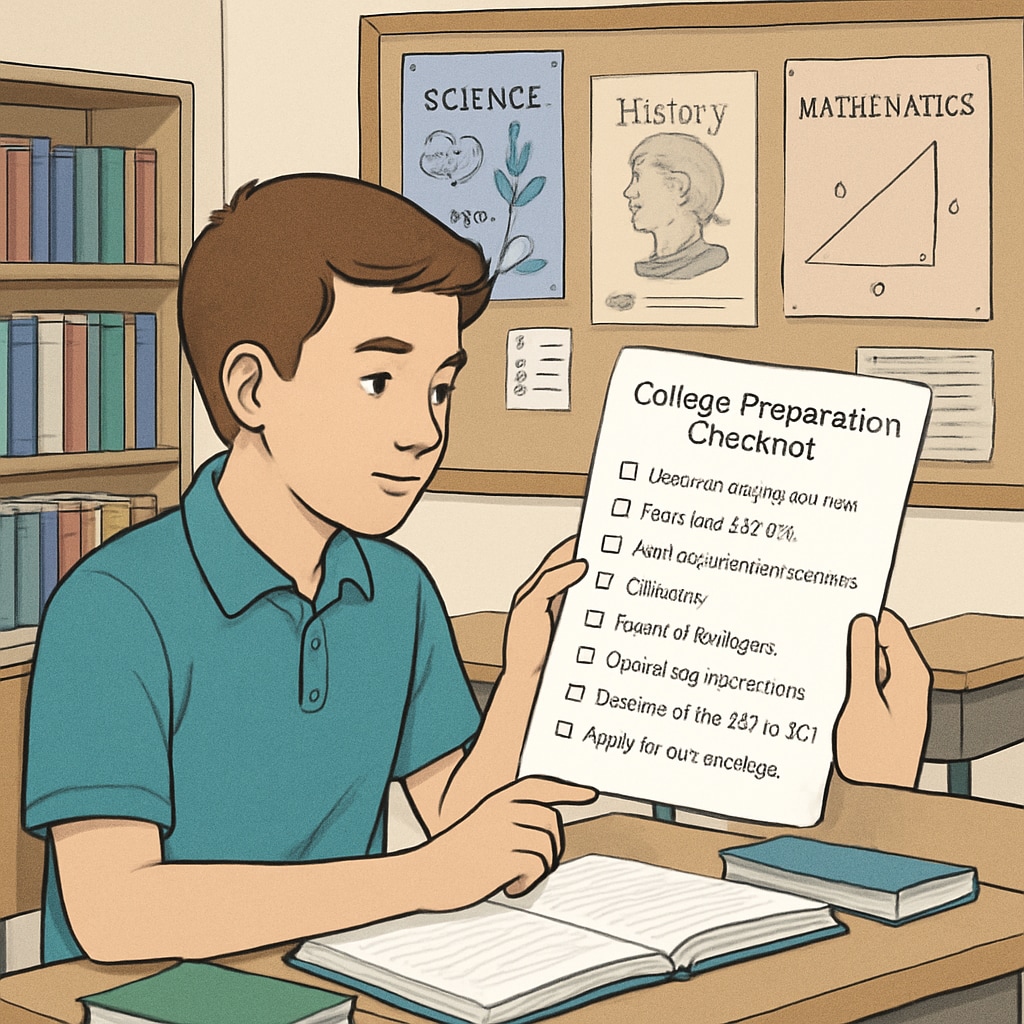Embarking on the college application journey is a daunting task, especially for high school freshman students. Many students and their families underestimate the importance of starting early, leading to common missteps that can complicate the process later. The challenges faced by freshman students in college application preparation stem from a lack of guidance, unclear goals, and overwhelming information. Addressing these issues requires collaboration between students, parents, and schools to ensure a smooth and successful path to higher education.
Why Freshman Year Matters in the College Application Process
While the college application process might seem distant during freshman year, it’s a critical time to lay the foundation for success. A common misconception among students is that college preparation begins in junior or senior year. However, waiting too long can lead to rushed decisions and missed opportunities.
In freshman year, students should focus on building strong academic habits, exploring extracurricular interests, and understanding the expectations of college admissions. For example, colleges value consistent academic performance and leadership roles, both of which take time to develop. Without early planning, students may struggle to meet these expectations.

Common Challenges and Missteps Faced by Freshman Students
Freshman students often face several obstacles in the early stages of college preparation. These include:
- Lack of Awareness: Many students are unaware of the long-term impact of their academic and extracurricular choices made during freshman year.
- Overwhelming Information: The abundance of college-related advice online and from peers can confuse students and lead to decision paralysis.
- Poor Time Management: Balancing academics, extracurriculars, and personal time is a new challenge for most freshmen.
- Unrealistic Expectations: Some students set overly ambitious goals without understanding the steps required to achieve them.
Each of these challenges can lead to poor preparation and missed opportunities, such as failing to take prerequisite courses or neglecting to develop a well-rounded profile. Addressing these issues early is essential for long-term success.

Practical Solutions: How Schools, Parents, and Students Can Collaborate
To overcome these challenges, a collaborative approach involving students, parents, and schools is essential. The following strategies can help freshman students navigate the college application process more effectively:
1. Schools: Providing Structured Guidance
High schools can play a pivotal role by integrating college preparation into the curriculum. For example:
- Offering workshops on goal setting and time management.
- Providing resources like college fairs and career counseling.
- Assigning mentors or advisors to help students track their progress.
By providing structured support, schools can reduce the confusion and stress associated with college preparation.
2. Parents: Encouraging and Supporting Their Children
Parents should actively participate in their child’s college planning without being overly controlling. They can:
- Encourage open communication about academic and career interests.
- Help students stay organized by setting realistic goals and deadlines.
- Provide emotional support during challenging times.
Parental involvement can motivate students to remain focused and proactive throughout high school.
3. Students: Taking Initiative and Ownership
Ultimately, students must take responsibility for their own college preparation. Freshmen can:
- Set small, achievable goals each semester.
- Explore their interests through clubs, sports, or volunteering.
- Seek feedback from teachers and mentors to improve their academic and personal growth.
Establishing these habits early will make the college application process less overwhelming in later years.
Looking Ahead: Building a Roadmap for Success
Freshman year is the ideal time to begin building a roadmap for college success. This roadmap should include academic goals, extracurricular plans, and a timeline for key milestones. For example, students can aim to complete certain courses by sophomore year or take on leadership roles in their chosen activities by junior year.
In addition, students should periodically revisit and adjust their goals based on their progress and evolving interests. Flexibility and persistence are key to navigating the often unpredictable path to college admission.
Conclusion: The college application process is a marathon, not a sprint. By addressing challenges early and fostering collaboration between students, parents, and schools, freshman students can set themselves up for success. Starting early enables students to build a strong foundation, avoid common missteps, and confidently pursue their higher education goals.


